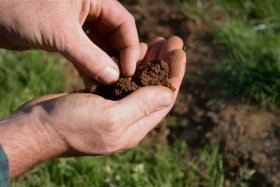The state government is going to develop the infrastructure of the soil-testing laboratories.
“Soil testing was totally neglected so farmers did not get the benefit. Around 200 scientists were appointed for running those laboratories, but the project was stopped by then Left Front government,” Purnendu Bose, State Agriculture Minister said.
Data bank of soil testing
A data bank will also be made for keeping the soil testing record. Soil and water layer will be tested for the benefit of the cultivation.
“This will help to know the ingredient of the soil. The purpose of soil-testing in high-yield farming is to determine the relative ability of a soil to supply crop nutrients during a particular growing season,” he said.
These laboratories would also help to determine lime needs, and for diagnosing problems such as excessive salinity or alkalinity. Soil testing result will be also used to guide nutrient management decisions related to manure and sludge application with the objective of maximizing economic/agronomic benefits while minimizing the potential for negative impacts on water quality.
Boost for investment
Block wise data bank will be made, which could be used for farming round the year. As the state government is encouraging the farmers for alternative farming, so soil testing result will help to determine which alternative crops could be sowed after drought and flood.
The soil-testing laboratories will help industrialists to decide for investment, as they could know about the fertility of any particular land of any area through data bank.


